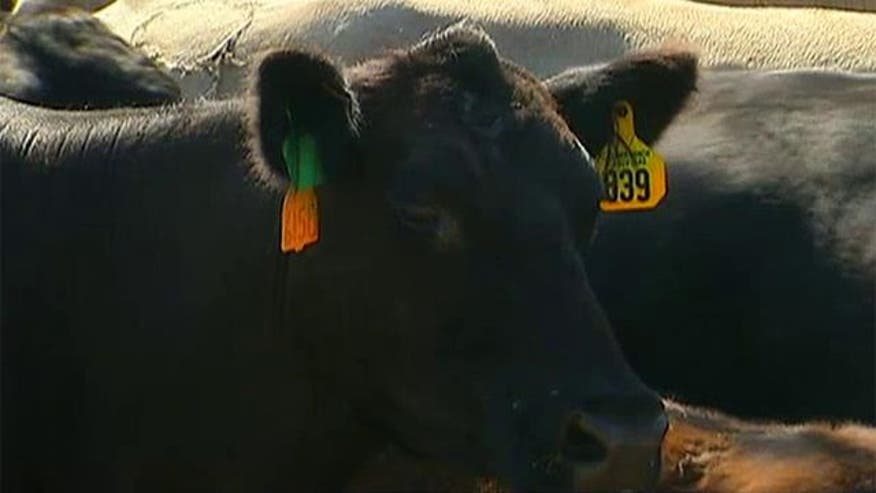
Farmers and ranchers in Oregon are locked in a battle with lawmakers who want to restrict their ability to give antibiotics to their animals — as part of a first-in-the-nation push to crack down on the alleged overuse of the drugs.
Driving the push is the threat posed by so-called “superbugs,” or bacteria resistant to antibiotics.
The Centers for Disease Control and Prevention estimated in a 2013 report that superbugs sicken 2 million people, and kill 23,000, every year in the United States. Health officials agree that the overuse of antibiotics is the major reason.
But unable to influence doctors who over-prescribe antibiotics for their patients, public interest organizations are instead going after farmers and ranchers — many of whom give their animals antibiotics to keep them healthy.
The Oregon State Public Interest Group, or OSPIRG, helped write a bill that would ban the use of antibiotics on farms to prevent illness.
“A daily low dose of antibiotics to keep animals from getting sick — we would never do that on people, we’d never do that on a roomful of schoolchildren, and yet we do that every day on animals,” said Dave Rosenfeld of OSPIRG.
The bill puts the Oregon Health Department in charge of tracking the use of antibiotics on farms and coming up with penalties for violators.
If it passes, the legislation would be the first anti-antibiotics law in the country.
But it’s not going over well on many of the state’s farms and ranches.
The Oregon Farm Bureau opposes it, saying their members would be put at a severe disadvantage against competitors from other states. Also, officials argue it would do little to reduce the consumption of antibiotics since food comes into Oregon from all over the country.
Third-generation farmer Steve Coleman, who has 1,100 head of cattle, is worried about losing a valuable tool in his toolbox.
“You better put enough antibiotics in them to cure them and get them feeling better,” said Coleman. “There’s no sense in those cattle suffering out there when they don’t have to. It’s just one of those things that’s got to get done.”
Some small farmers support the legislation, saying they don’t need to use antibiotics because their animals have more space, making them less susceptible to disease spreading.
But Shepherd Mickey Killingsworth, who lost many sheep when she didn’t use antibiotics just before shearing, resents the interference.
“I want to go and say so bad to these politicians, ‘So can I walk into your house and look in your medicine cabinet? Can I see what drugs you buy over the counter?'” said Killingsworth.
At the same time, others worry the apparent trend of antibiotics becoming less effective against “superbugs” could leave doctors with fewer treatment options.
“We have less and less antibiotics that are effective,” said Dr. Dawn Nolt at the Oregon Health and Science University, “We’re looking at a patient population that’s going to be sicker, stay sicker longer and may die.”
Congress has ignored bills similar to Oregon’s in each of the last 18 years. But there has been some action among big food producers and restaurants. McDonald’s, Tyson and now Foster Farms will be phasing out the use of some antibiotics.
Dan Springer joined Fox News Channel (FNC) in August 2001 as a Seattle-based correspondent.

